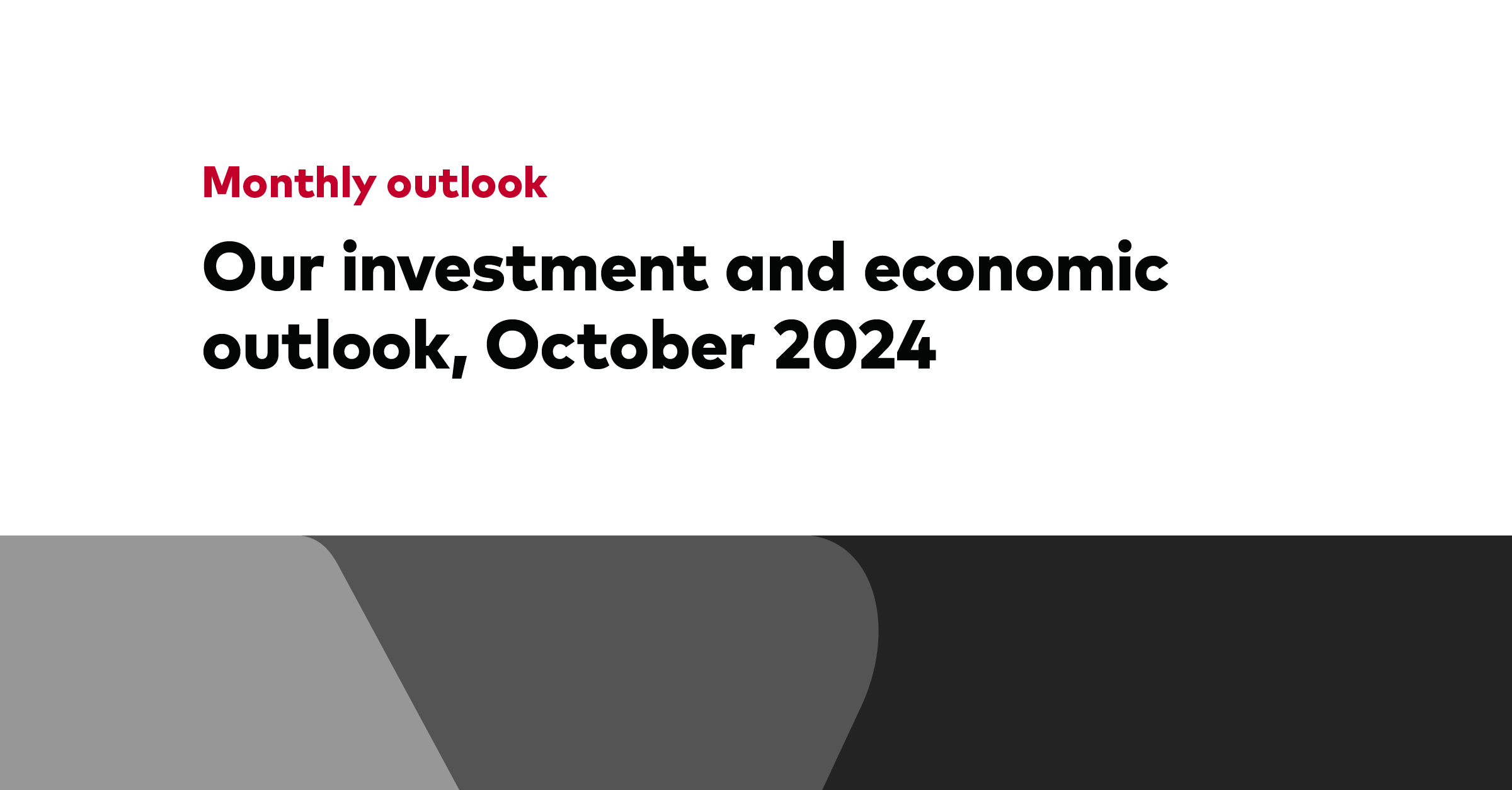Active fixed income
Active Fixed Income Perspectives Q4 2024: Temperature check
October 30, 2024
With the global interest rate-cutting cycle underway, the probability that central banks will be able to normalize policy without economic cost has meaningfully improved. Investors can still lock in income at respectable levels, with the potential for significantly higher returns if the economy softens faster than expected and rates decline meaningfully.
Vanguard Active Fixed Income Perspectives is our in-depth quarterly commentary on the bond markets, with sector-by-sector analysis and a summary of how those views affect Vanguard’s actively managed bond funds.
Key takeaways
Performance
The Bloomberg U.S. Aggregate Index soared in the third quarter, with its 5.20% advance representing the second-highest quarterly return since 1996. Municipal bonds also performed well, with a 2.71% return. Higher expectations for an aggressive start to the Federal Reserve’s interest rate-cutting cycle boosted bond prices and drove yields lower. Treasury rates across the curve have moved up since mid-September, pressuring recent returns.
Looking ahead
A surprisingly robust September payrolls report tempered expectations for further slowing in the economy. The possibility of additional rate cuts will be affected by incoming jobs data, but the Fed must also watch inflation risks. U.S. elections may inject volatility, but we expect bonds to perform well in a range of economic scenarios and to act as a reliable ballast to equity volatility.
Approach
With strong growth and a proactive Fed, the risk of a U.S. recession next year remains low, a sentiment reflected in market prices. We remain constructive on credit but conscious of expensive valuations and possible downside risk.
Active fixed income perspectives: Q4 2024
Notes:
All investing is subject to risk, including the possible loss of the money you invest.
Investments in bonds are subject to interest rate, credit, and inflation risk.
Although the income from a municipal bond fund is exempt from federal tax, you may owe taxes on any capital gains realized through the fund’s trading or through your own redemption of shares. For some investors, a portion of the fund’s income may be subject to state and local taxes, as well as to the federal Alternative Minimum Tax.
